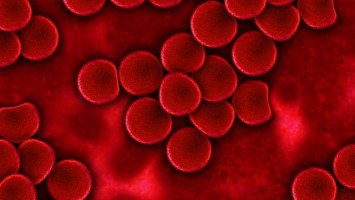
Scientists have discovered that sodium bicarbonate - also known as baking soda or bicarbonate of soda - can reprogram T cells in leukaemia patients to resist the immune-suppressing effects of cancer cells, which can drive leukaemia relapse after stem cell transplants.
The findings were published in Science Translational Medicine.
The work clarifies why patients frequently relapse after transplant, and lays the foundation to test sodium bicarbonate as a safe and simple therapy to reduce relapse rates and improve treatment outcomes.
Allogeneic haematopoietic cell transplantation is a form of stem cell transplant that can sometimes cure people with blood cancers such as acute myeloid leukaemia (AML).
However, complete response rates can be as low as 17% after 100 days, largely because the leukaemia will frequently return.
There is a pressing need for methods that can boost the anticancer effects of stem cell transplants, but researchers haven't fully understood why donated T cells often fail to finish off tumours.
By studying mouse models of leukaemia and T cells from patients before and after transplantation, Franziska Uhl and colleagues found that AML cells suppressed the metabolic activities and the spread of donated T cells by secreting lactic acid, which acidified the cellular environment and interfered with glucose metabolism.
Searching for therapies, the team turned to the antacid sodium bicarbonate, and found that a clinical formulation named bicaNorm reversed these suppressive effects on T cells in 10 transplant recipients with relapsed AML.
The authors call for trials with larger groups of patients to better determine the long-term benefits of sodium bicarbonate for recipients of stem cell transplants.